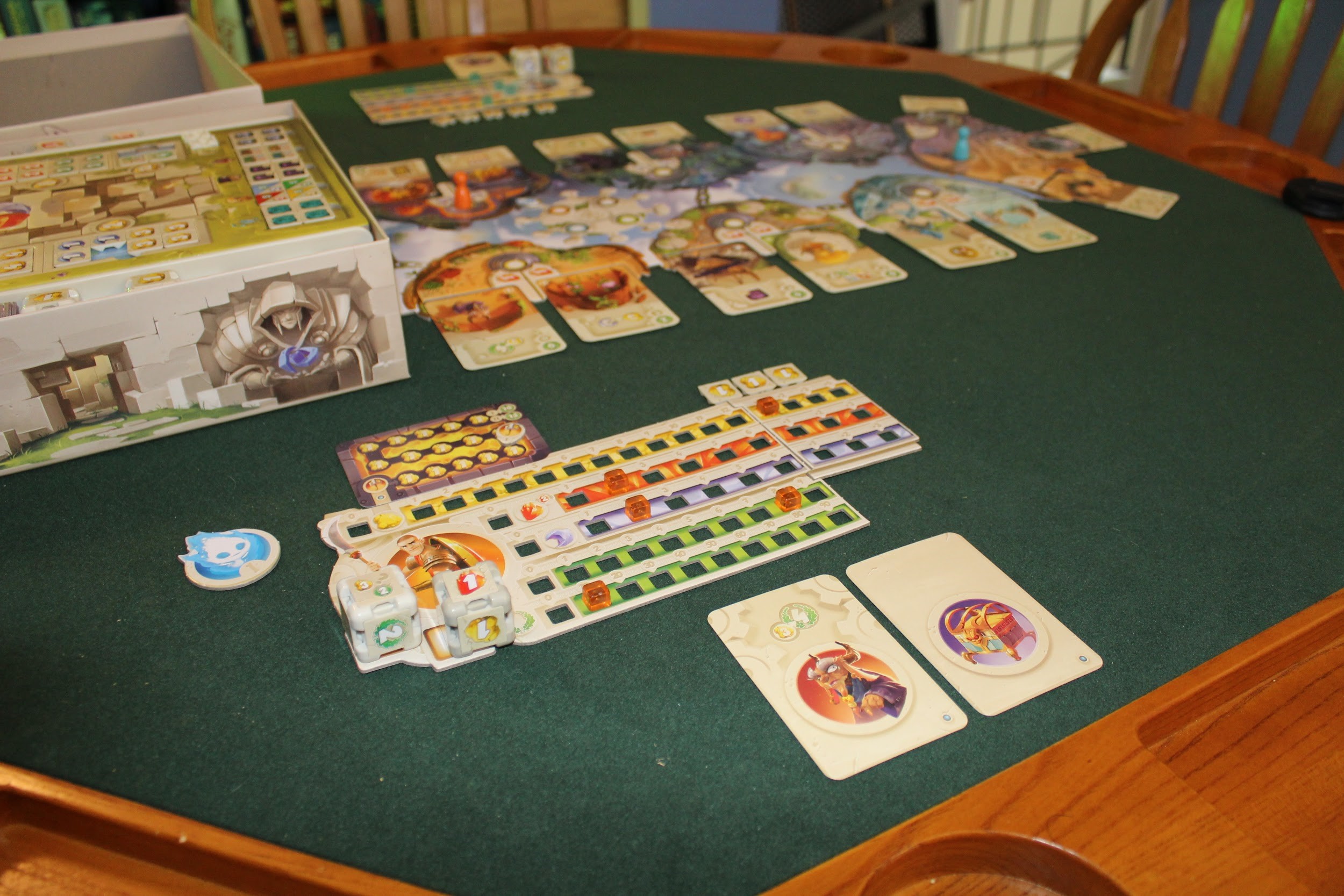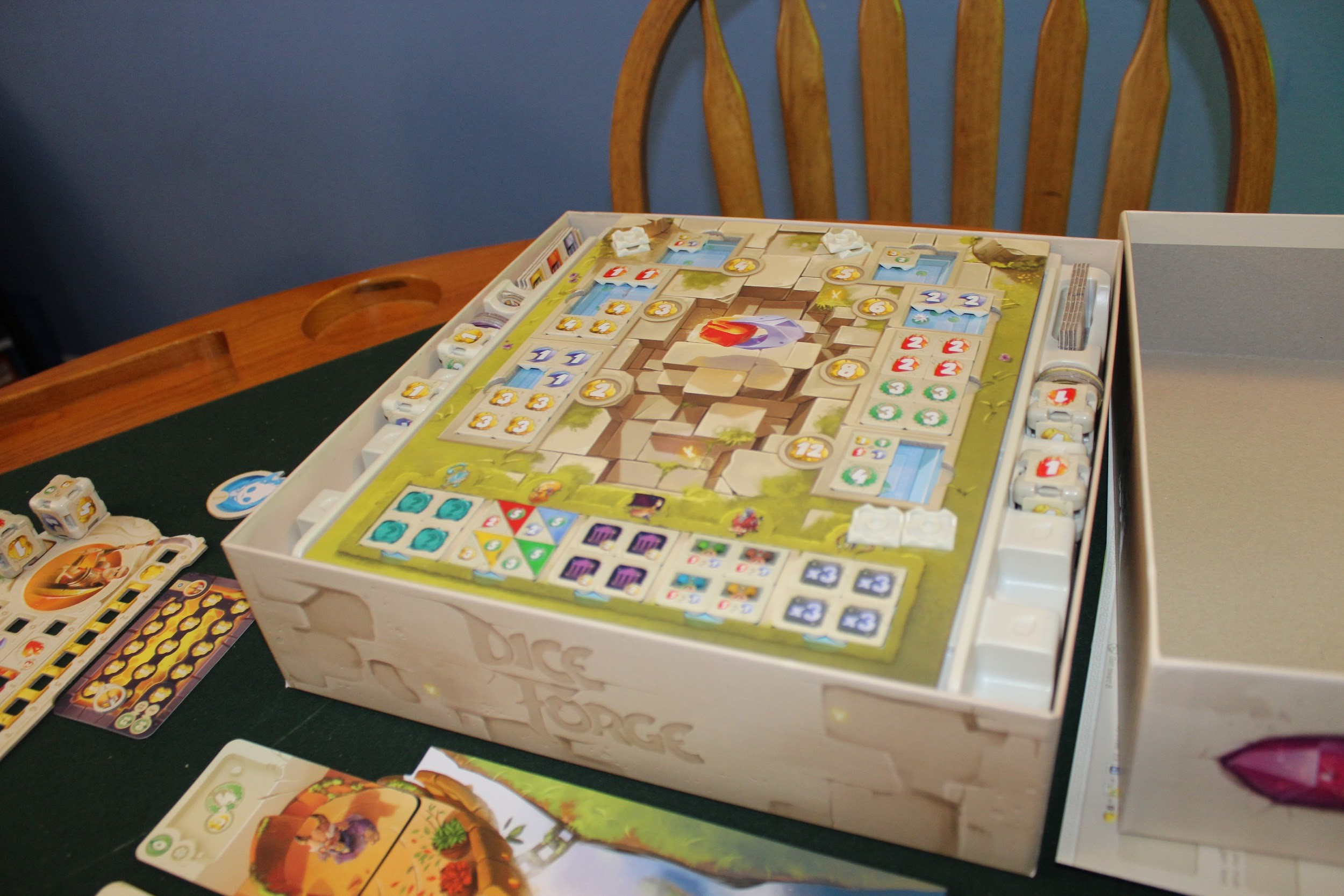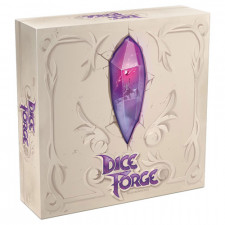Dice Forge Review
on Jul 19, 2017
I gain some resources. I exchange those resources for things that let me generate more resources. I exchange some resources for points.
This routine will sound familiar to you, of course, if you’ve played a Eurogame in the past fifteen years. And Dice Forge really, at its heart, despite its amazing presentation and clear attempt to rise above the rest of the crowd, is no exception.
And the presentation is nothing short of amazing. I don’t say that idly. If most board game designers and publishers put in even half the love and care that went into Dice Forge’s package, I’d be happy. Cards line up perfectly with the game’s central board, with continuous art to draw you in. Icons are clear and concise, and while you’ll have to look up the meaning of some of the cards for your first play, the game’s graphic design does everything in its power to help you internalize what everything does so that your second play will be seamless. The game’s even got an intricate, CAD-drawing-like diagram of how to put everything back in the box, for crying out loud. Ugh—I can’t overstate how great the production really is here.

It’s… it’s… beautiful [eyes welling up with tears]
The pleasure of rolling the dice and moving your cubes up the lovingly designed player boards is visceral and immediate. But the experience of popping off the dice faces and sending them flying across the room? Not so much. This gets better with experience, but it’s not the smooth process it should have been.
The game also borrows the wonderful concept of gathering resources on other players’ turns from Catan, keeping you involved in the action on each and every turn. The game’s like a prize machine that’s always spitting out some candy or a fluffy plush doll, each and every turn, keeping you engaged. It has that sense of moving up the ladder, of ending the game much more powerful than you started. It all comes together to become a very clever, very solid entry-level game with a deckbuilder-like feel. It certainly is enjoyable, even if the experience feels well-tread, predictable, and inevitable.
There are some interesting decision points, like which dice faces the player should send soaring across the game room to replace with something slightly better. You’re tasked with deciding if you should throw out your starting 1-gold pips for more gold pips, or if you should focus on the harder-to-acquire red and blue resources to grab some early powers in hopes that their abilities will pay off by the end of the game. You’ve also got to decide when to swing from building your resource-generating machine into buying points like they’re going out of style, much like Dominion, which was a clear point of inspiration here.

Humans thousands of years from now will unearth the insert of this game and realize how advanced our culture had become before its collapse.
And all of this occurs within a tight series of rounds, with each player receiving surprisingly few actions. Your engine will get up and running, and then you’ll turn the corner and slam into the finish line before you know it. Some won’t like the suddenness of the ending, but I think this is one of the better parts of the design. Every action counts, so you have to decide if you’re going for this or that. You don’t get to build out the whole tech tree and generate hundreds of points turn after turn, long after the game has been decided. It’s over right when it should be, and does not outstay its welcome.
Still, I roll some dice, I get some bits and pieces of my engine, and I roll some more dice and get some more stuff and buy some points. Despite the game’s sense of progression, I can never shake this feeling. It holds up signs screaming that it’s different, it throws wacky, wild inflatable dancing cartoon characters on the street corner, letting me know that this is something new, exciting, and fun! And I want to believe it, but all too often I see through the cracks and realize I’m playing the same game I’ve played every time a new flavor of the month pops up.
So it’s the same old story, a clone of thousands of different Eurogames that all share the same skeleton. But it’s a really well done, carefully crafted clone. So if you can get over the fact that you’ve played this all before, Dice Forge is worth taking out for a roll. And if you must play a Eurogame, it’s certainly one that’s worth exploring - at least until something shinier comes along.

 Customer Support
Customer Support  Subscribe
Subscribe 




 Account
Account  Wishlist
Wishlist 

